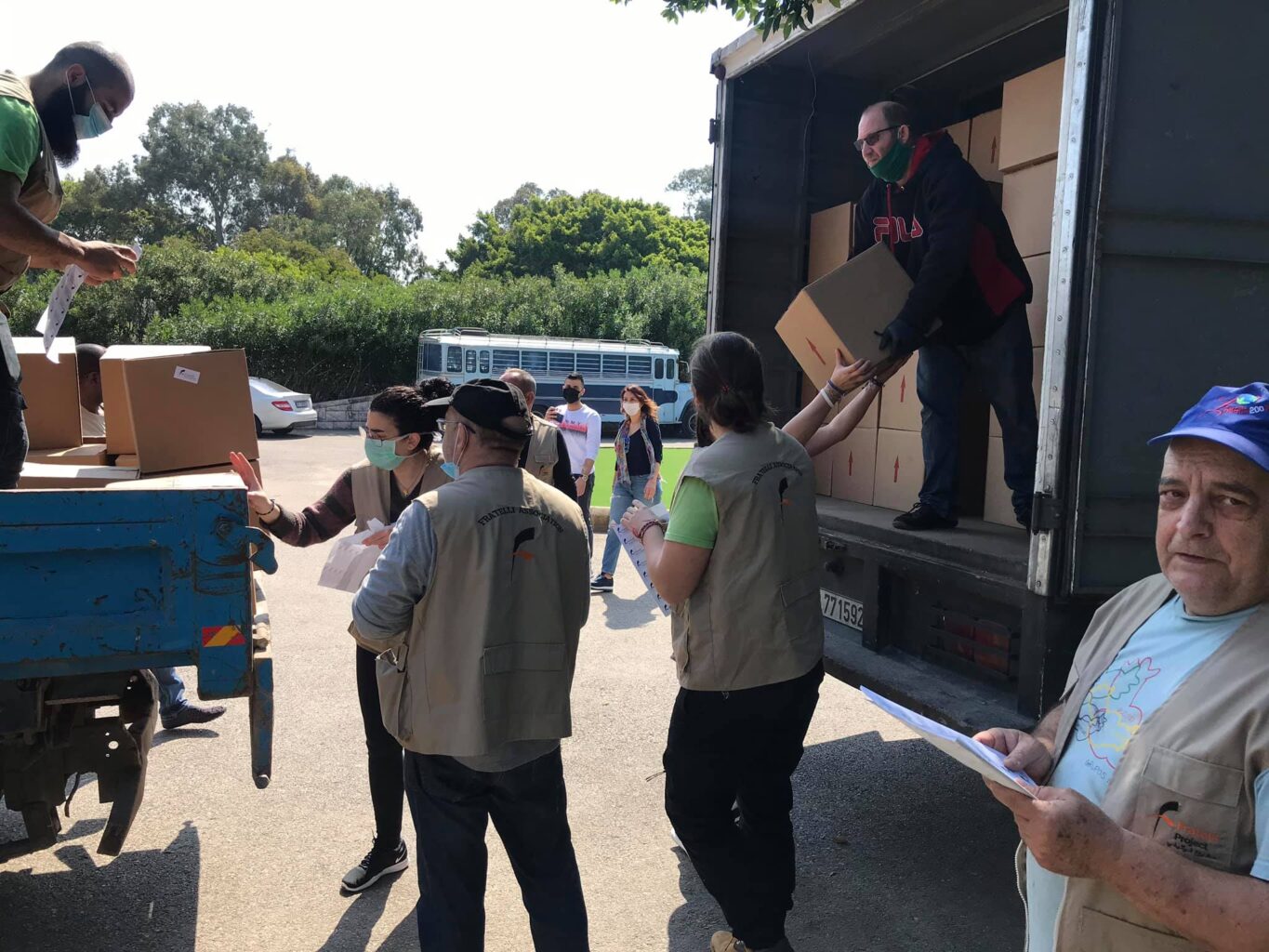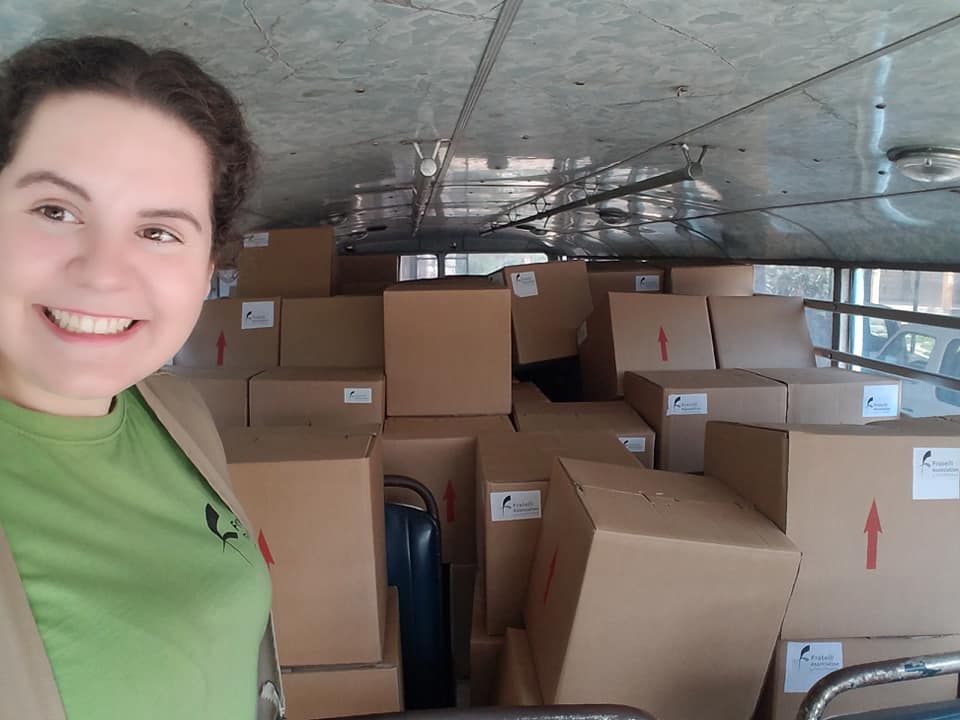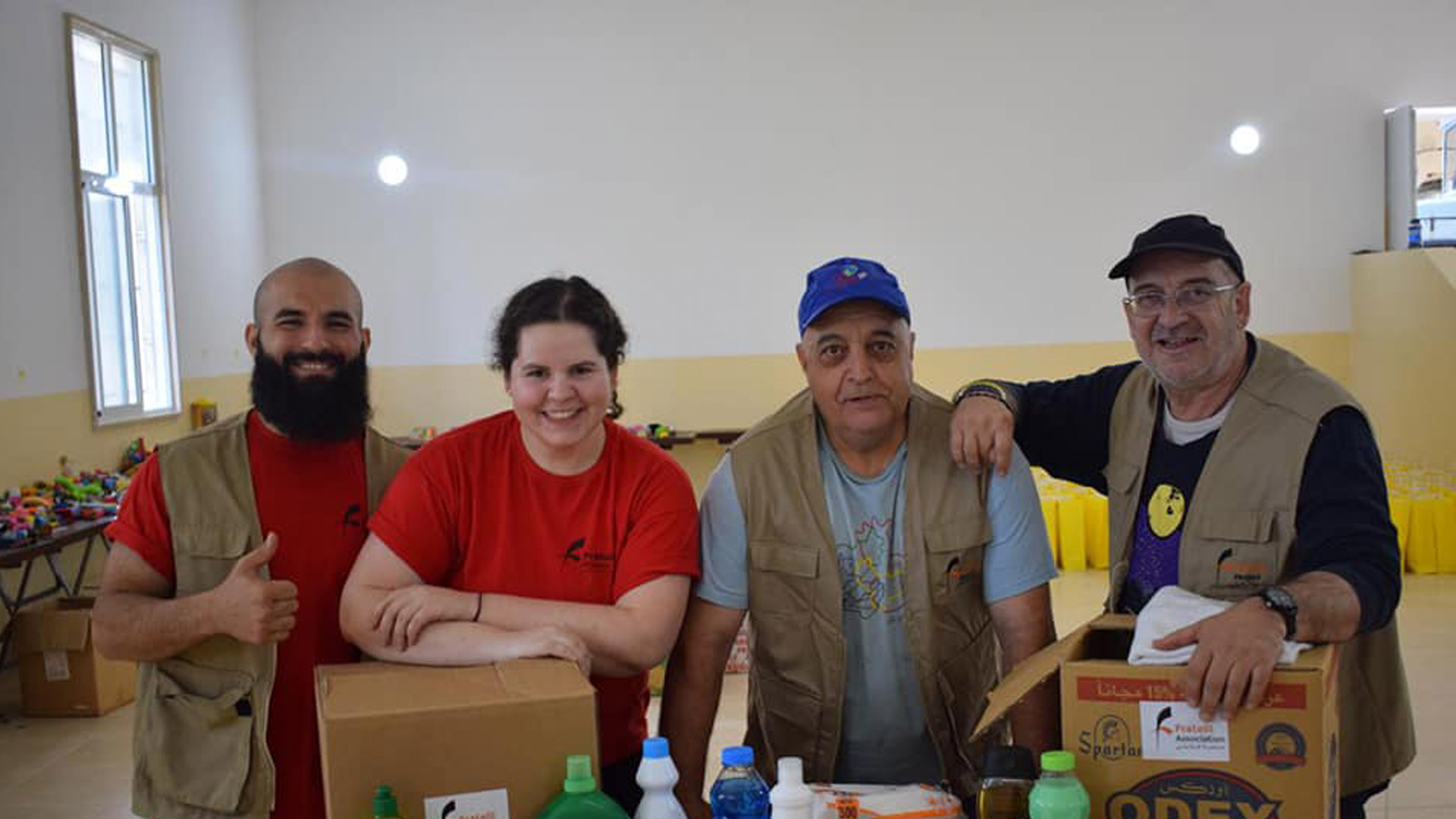“We haven’t been able to leave our home for a few weeks now, except to go to the grocery store and pharmacy. And now the money is just running out.”
These were a few of the words that greeted the Fratelli staff in March when staff members came to collect their salaries. Already an entire month had passed without any Fratelli programs and for our staff without work. Deciding to continue paying Fratelli’s non-contracted employees came without question but after hearing the situations in real-time as staff members came in one by one it became clear that more needed to be done.

Thus launched the start of the Fratelli 2020 COVID-19 Humanitarian Aid Project an initiative aimed at responding immediately to the unfolding COVID-19 crisis that was not only devastating the country of Lebanon but in particular the communities at the margins -mainly refugees.
Created in 2015, Fratelli is a co-sponsored collaborative project launched by the Marist and Lasallian Brothers. Seeking to serve those at the margins the project primarily focuses on serving the refugee populations here in Lebanon mainly Syrian and Iraqi as well as impoverished Lebanese families. For both religious orders, education is at the heart of their missions both as a tool to dismantle generational poverty and a path to creating positive and sustainable changes within poorer communities. The Brothers quickly realized that to educate the hearts and minds of young people bellies needed to be full and hands needed to be washed. One cannot teach an empty stomach. From this emerged an annual Humanitarian Aid project in which every spring Fratelli would offer assistance in the form of basic needs; food, access to clean water, clothes, and shelter to its families.
This year the challenge was monumental. With a pandemic sweeping the globe the Lebanese country, already crippled by a collapsing financial system, political revolutions, and crumbling infrastructure, was tittering on the brink of collapse. To prevent widespread chaos the government quickly sealed the country off and shut everything down, implemented curfew, the wearing of a facemask, and limited the movement of people across the entire country. The goal was to control the spread of the virus and prevent it from reaching the shelters the refugees lived in which would have created an explosion of cases. Currently, Lebanon has the highest refugee to citizen population in the world with “…156 per 1,000 of its inhabitants… [followed by] Jordan… with 72 per 1,000 of its population… [and] Turkey rounds off the top three with 45 per 1,000 of its people.”[1]a number that has only increased since the onset of the Syrian war which according to the World Bank in 2018, Lebanon was home to over 1,424,592 refugees, the majority of which Syrian.[2]
It is undeniable that COVID-19 has disproportionately affected refugee populations. By restricting movement and shutting down work sites refugees that rely upon and participate in a cash-based economy are cut off entirely from their source of income. By not being able to use the banking system in Lebanon refugees use cash to pay rent, purchase food and other supplies include medication. Fratelli works with just shy of 1,000 families each of which has clearly expressed the growing severity of the situation. For the world, COVID-19 will be a crisis based of health, hygiene, and medical/government infrastructures. But for poorer populations and refugees the crisis will be one of hunger rather than COVID-19.
This year Humanitarian Aid Project is easily the largest and most quickly formed project in Fratelli’s history due to the immediate needs of our families. It is composed of four parts:
- Hygiene Boxes – are filled with cleaning supplies for personal hygiene and overall home health, each box will last a family for a month, and comes with a pamphlet on how to practice good hygiene and health to prevent the spread of COVID-19.
- Food Parcels – contain anywhere from two to four weeks’ worth of non-perishable essential foods depending on the size of the family. Essentials include salt, oil, lentils, flour, pasta, canned tuna, and more.
- Confinement Bags – come with educational and recreational activities for our students as all are confined to their homes during this period. Coloring books, small toys, balloons, and stuffed animals are provided to give students activities to do and parents a sense of peace.
- Educational Videos – Fratelli offers a variety of programs to its students and has transitioned all classes/programs to online platforms. Teaching teams are creating weekly videos filled with activities and educational material to keep students on track for academic success. In addition, English Classes are being taught via WhatsApp and Fratelli’s Youth Programs are receiving online formation as well.
By continuing to walk alongside its families Fratelli is animating its mission of working with populations on the margins by refusing to allow the difficult moments of today from preventing pastoral care and support. To engage the hearts and minds of its students Fratelli understands that safety, comfort, and necessities such as food must be considered priority number one. Live Jesus in Our Hearts! Forever!

This article was written by Emily Redfern, a long-term volunteer from the U.S. who is currently serving at the Fratelli Project.
[1] https://www.statista.com/chart/8800/lebanon-has-by-far-the-most-refugees-per-capita/
[2] https://databank.worldbank.org/reports.aspx?source=2&series=SM.POP.REFG.OR&country=



